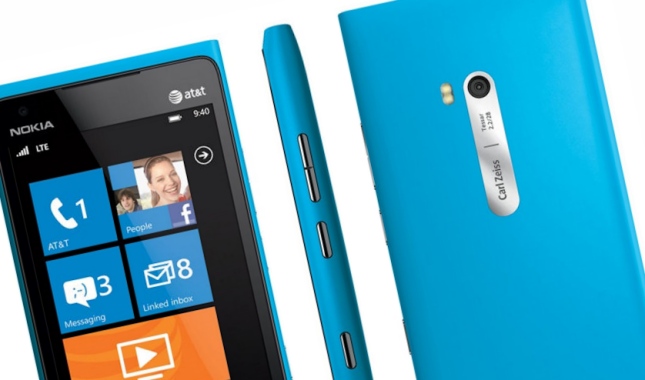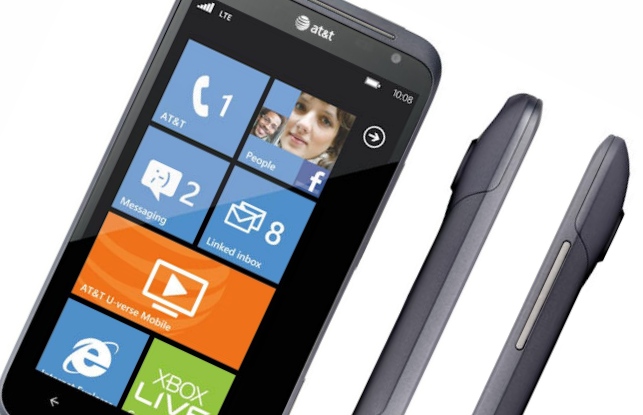Thanks to their parent company, the Windows Phone team have significantly more 'runway' to have the WP platform take off and become a self-sustaining department of Microsoft. The ability to take time and craft the user interface and the hardware platforms; the iterative approach to improving the operating system over a number of versions; to having multiple hardware partners playing with the OS alongside some more dedicated partners; all of these take time to develop. Time that Windows Phone has.

None of those options are realistically open to a new entrant into the consumer electronics market. The last iteration of Palm, for all its corporate history, was funded and run like a start-up when they brought their WebOS devices. They did not have a huge amount of cash to work through the same growth routes that both iOS and Android used. WebOS couldn't stick around to wait and see if people would come around to the system. Once Palm launched it, the first month or so of sales was everything they would be judged in. They had to rise meteorically to become relevant before they ran out of cash and had to sell up.
They didn't.
All of the currently popular operating systems have many things in common, and one of them is longevity.
Take iOS. At the launch of the first iPhone, there was a huge amount of technology missing, both in software and hardware. It still worked as a phone, but many people looked down on it, pointing out a lot of these missing areas when compared to the leading smartphone OS of the day (hmm, doesn't that sound familiar...) But it had something the other new entrants at the time didn't have.
A parent company that would wait out the first month of sales. That would wait out the first year. That would continue to improve and iterate the platform until all those holes were filled in. Apple were not only in the smartphone game for the long haul, but everyone knew that they had the cash reserves and the perseverance to take on board this multi-year project. That led to a different type of coverage from the mainstream media.

Android has a similar back story, with constant updates to the core Operating System, and there's no question that Android might suddenly disappear. This is where Google has the advantage of having multiple hardware partners - if one drops out, another will step up to carry on the march of Android towards the unattainable goal of software perfection.
This is where Microsoft are with Windows Phone. They are working through the iterations (7.0, NoDo, Mango, the update formerly known as Tango, and beyond, to Apollo), there is no doubt that they are in the smartphone game with Windows Phone for a number of years to come.
That long game approach means that one of the vital currencies in the smartphone ecosystem - apps - has time to develop and grow to a respectable number (75,000 at the last count on the All About Windows Phone app tracker). There is a slow burn of people discovering the delights of the Metro UI and how it 'just works'. It's a plan that has worked for others, and from all the signs we can see, Microsoft are making it work for them.
It also means that the upcoming launch of the Nokia Lumia 900 and the HTC Titan 2 on AT&T is not a make or break moment for the platform, for either HTC or Nokia.
Given the resources being poured into it, this is a big moment for Windows Phone, but it's not the last moment. There will be other opportunities for Microsoft to make some big plays with its hardware partners (the mix of Windows 8 and Windows Phone Apollo being one of the more obvious ones), and if the current launch doesn't quite hit critical mass, expect the story to be rolled forward into the growing ecosystem as Windows Phone continues to evolve.

The launch is important, but it's not a must-win final moment for any of the companies involved. A poor launch could cause Nokia some harm, but the early American feedback from the Lumia 710 on T-Mobile USA should calm any nerves. There's no way that the Lumia 900 will flop, but rather the question is just how well it will do on AT&T, and what Nokia will do next. The fact that everyone expects Nokia to do something more after the Lumia 900 is a good thing. That slight reduction in pressure on all the teams involved in getting the Lumia 900 to market will probably lead to better work on the 900, and a more evolved and iterative approach to the handsets to come.
The same will be true of HTC, although it should be noted they also have a strong portfolio of Android devices that make up a larger percentage of their business.
Windows Phone is not yet at its 'all-in' situation, where it has to bet the ecosystem. But the current wave of devices in the US is akin to a big bet. They don't need to win outright, and they're not going to get cleaned out if there's a (Galaxy) ace in the hole - there will be a future. That said, this would be a really good time for Windows Phone to earn an entry in the 'winning' column.
